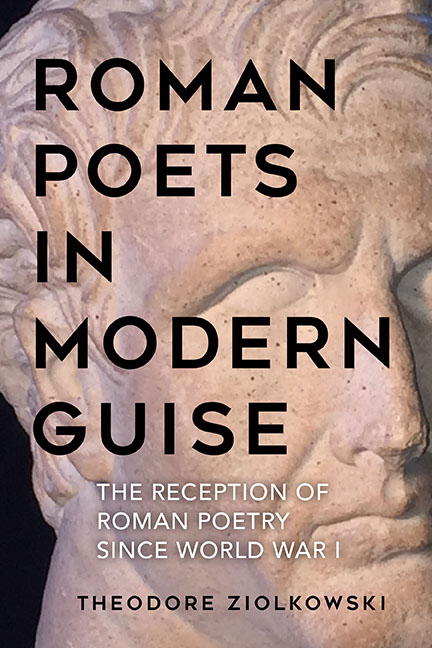Summary
As William Faulkner famously put it in his Requiem for a Nun (1951): “The past is never dead. It's not even past.” His statement holds a particular relevance for the cultural world. Picasso's Portrait of a Young Girl (linocut, 1958; lithograph, 1966) was clearly inspired, as its title goes on to indicate, “d’après Cranach le Jeune.” Arvo Pärt's magnificent Credo (1968) amounts to a “deconstruction” of Bach's Prelude in C major for piano, chorus, and orchestra. By analogy, many modern works of literature constitute postfigurations of older classic works. In Thomas Mann's Doktor Faustus (1947) the composer Adrian Leverkühn, in Weimar Germany, acts out the life of the Reformation hero, as best known from Goethe's Faust. The protagonists of Ignazio Silone's Bread and Wine (1936) and Faulkner's A Fable (1954), along with many other fictional heroes, follow in the footsteps of Jesus as depicted in the Gospels.
Classical antiquity has provided a conspicuous variety of themes and motifs that appeal to modern writers. Eugene O’Neill's trilogy, Mourning Becomes Electra (1931), and Jean-Paul Sartre's Les mouches (1943) are reworkings in modern settings of themes first set forth in Aeschylus's Oresteia. James Joyce borrowed elements from the figure of Daedalus in Ovid's Metamorphoses to characterize Stephen Dedalus—and to provide the motto—in his Portrait of the Artist as a Young Man (1916). Anthony Burgess's A Vision of Battlements (1965; written 1949) sets the action of Virgil's Aeneid on Gibraltar during and after World War II. Novelists from Hermann Broch in The Death of Virgil (1945) to Christoph Ransmayr in The Last World (Die letzte Welt, 1988) have reconstructed episodes from the lives of Virgil and Ovid in imaginative historical fictions. And such anthologies as Michael Hofmann's and James Lasdun's After Ovid (1994) or Nina Kossman's Gods and Mortals: Modern Poems on Classical Myths (2001) exemplify the lasting appeal of ancient myths for dozens of recent poets. It goes without saying that readers who fail to appreciate the classical allusions or patterns in such works miss essential elements or dimensions of the novels, plays, and poems in which they occur and which they shape.
- Type
- Chapter
- Information
- Roman Poets in Modern GuiseThe Reception of Roman Poetry since World War I, pp. ix - xiiPublisher: Boydell & BrewerPrint publication year: 2020



